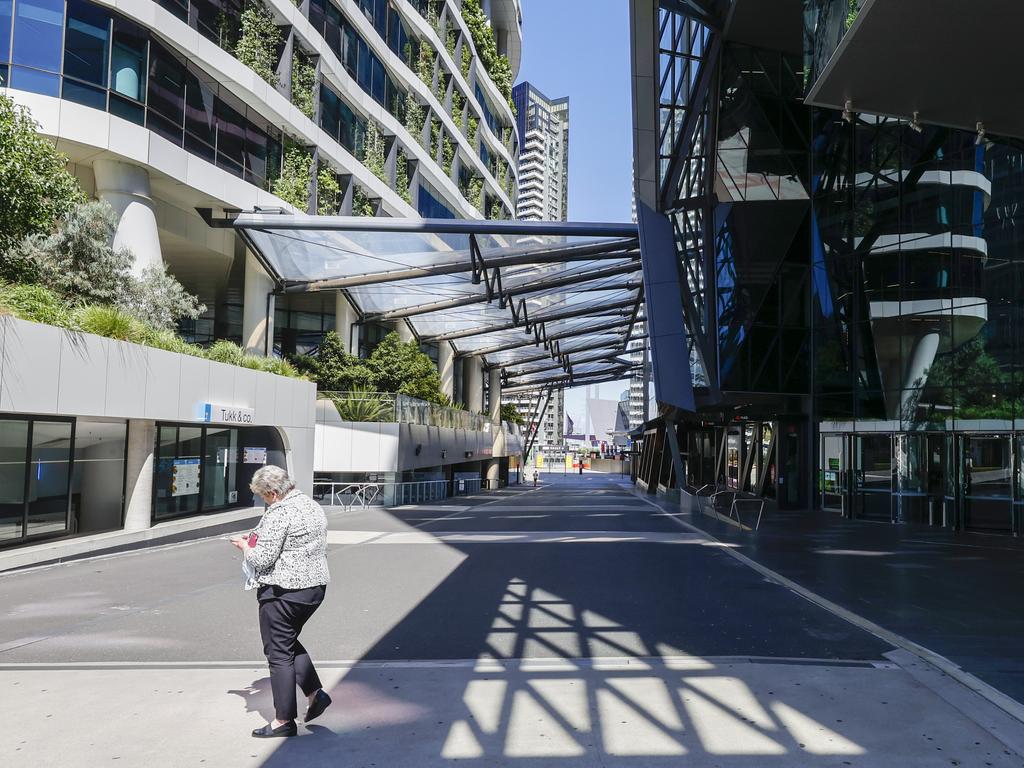Aussie sisters, and brothers, are doing it for themselves
New data confirms we’re a nation of go-getters, delivering what it takes to create the quality of life we’ve come to expect.

On the other hand, maybe the vastness of the continent requires the kind of infrastructure that only a government can provide.
As a consequence, the Australian business landscape is littered with evidence of big government stepping in to provide essential services.
Two of our largest banks started as government enterprises. The Australian biotech giant CSL was founded more than a century ago as a government entity.
Even our biggest telco started out as a spin-off from the postmaster general’s office.
As is so often the case, the answer to this question probably lies somewhere in between.
Perhaps the census can help discern whether we Australians have what it takes to create and to scale up the businesses required to deliver the prosperity and the quality of life we have come to expect. New data recently released from the 2021 census shows that 14 per cent of the Australian workforce is either a business owner or manager. This key metric varies across industries.
In the delivery of carpentry services, for example, some 42 per cent of this industry’s 74,000 workers reported their work status as business owner/manager.
In hospitals, banking, defence and aged-care services, this proportion is 1 per cent.
In bauxite mining, this proportion is 2 per cent. And in the delivery of religious services, just 811 – or 3 per cent of the 32,000 workers in this industry – identify as an owner/manager.
Some industries are simply better suited to the business of business creation by offering, for example, low barriers to entry. There may also be a lifestyle factor that influences such choices.
In resources towns like Mt Isa and Port Hedland, just 5 per cent of the local workforce identifies as a business owner/manager. But in what can be fairly described as Australia’s premier lifestyle town, Byron Bay, this proportion rises to a remarkable 31 per cent (1713 out of 5464 workers).
But it’s not just Byron Bay that stands out as a business – and thus perhaps even a capitalist – hotspot. It is also the retirement community of Victor Harbor-Goolwa (22 per cent), the lifestyle town of Ulladulla (also 22 per cent), and the treechange and former goldmining town of Castlemaine (also 22 per cent).
Such is the business owner/manager skew towards lifestyle towns that we could be witnessing the formation of a new cultural subgroup: the “lifestylepreneur”.
This life form might be described as a capital city escapee who has the skills, and perhaps some capital, who (later in their career) makes a lifestyle choice to move to Byron, or Victoria’s Castlemaine, to pursue a local or an online business.
In the NSW central highlands town of Bowral-Mittagong, a favourite rural retreat of Sydney’s corporate set, some 21 per cent of the local workforce reported their work status as owner/manager.
There is a clear cultural link between swish Bowral and breezy Byron Bay: both places are, in their own way, exceptionally entrepreneurial.
At a capital city level, the owner/manager factor hovers around the Australian average of 14 per cent. Canberra is different at 9 per cent. And so too is Darwin at 10 per cent which, across a number of metrics, is evidently a city dominated by the public sector.
Interestingly, even though both Sydney and Melbourne were locked down when the 2021 census was conducted (in August), Melbourne reported more workers and a marginally higher proportion of owner/managers.
I am sure patriotic Victorians would say this is due to Melbourne’s inherently stronger entrepreneurial culture. Or it could be the fact that the upper stratum of Sydney’s business community decamped to places like Bowral and Byron to avoid the worst of the lockdown.
Melbourne’s Toorak set also escaped the city but their reprieve, I suspect, was the Mornington Peninsula which technically is still part of Greater Melbourne. The bottom line is that all state capital cities have a similar propensity to generate and to support owner/manager style businesses.
State differences in apparent entrepreneurship levels surface with the presence of lifestyle towns offering locals low-barrier-to-entry business opportunities.
To the Australian mind, there is no better lifestyle than “being your own boss” in a sea-change or tree-change community.
Becoming a business owner/manager is something that accrues with age, and with time in the workforce. Interestingly, there were 456 workers aged 15 at the last census, out of a workforce of 69,000 (or 1 per cent of workers in that age group) who reported owning or managing a business.
The national average of 14 per cent of workers owning or managing a business isn’t reached until the age of 37, and it doesn’t stop rising until the late 70s.
However, the owner/manager curve does flatten during the 40s and 50s as children and teenagers arrive making the household far more risk-averse.
The most entrepreneurial workers are those in their 20s and 30s. And as far as would-be retirees are concerned, the entrepreneur curve positively skyrockets in the late 70s. This might include, for example, farming families where the patriarch simply refuses to retire. Or they have stepped back from the workaday fray, but they regard themselves as still being the business owner/manager for census purposes.
The largest number of business owner/managers apply in the job of retail manager (general): 57,668 workers reported holding this position at the census. This was followed by chief executive officers (45,648), carpenters (35,341), project builders (34,663) and electricians (general) (27,027).
Home building, high-street retailing and everyday services provision including cafes and hairdressers, as well as accounting and bookkeeping, are the jobs that deliver grassroots entrepreneurship across Australia.
Australia is divided on the issue of business management and entrepreneurship. In the grazing and cropping lands of the interior, agribusiness flourishes.
In remote mining communities, it is employee workers who reign supreme. Mining is essentially a capital-intensive logistics business where workers follow established (safety) processes and protocols. There’s a higher ratio of workers to managers in mining than there is in, say, law, accounting or even retailing.
In Sydney and Melbourne and in other capitals, the urban mass is enveloped by a tradie and farmer belt. Australia’s growing cities creates entrepreneurs of those with skills in building, including carpenters, electricians and project builders.
The suburbs thus created support demand for start-up businesses in local cafes and hairdressers, which in turn drive demand for accountants and bookkeepers.
The entrepreneurs of corporate Australia, on the other hand, are more likely to cluster in Sydney’s eastern suburbs, in Bayside Melbourne, in Perth’s Dalkeith. All these cities sprout outer-suburban, self-employed enclaves that together create a kind of tradie nation led by the likes of carpenters and electricians.
I do think that the scale and isolation of Australia has created a can-do kind of people at a national level. But the pathway ahead, even in a world that is deglobalising, is likely to result in Australian businesses competing with global entities.
What would be the effect on employment and service provision across the Australian continent if banking or retailing, as examples, were to be swept up in new online models of service delivery?
We need the capability and the predisposition to create new businesses, to employ our fellow Australians, to generate wealth. This business ecosystem must also be sustainable, ethically operated, civic-minded and, above all, adaptable.
We need the next generation of Australians to lean into and to embrace the idea of starting a business and of scaling a business. The pathway to prosperity must include a legitimate role for, and due recognition and reward for, those prepared to take risks, to have a go, to take on staff, and to strengthen Australia.
Bernard Salt is founder and executive director of The Demographics Group. Research and data by data scientist Hari Hara Priya Kannan.







In one sense it might be expected that Australians should be a naturally entrepreneurial people. We are a small nation spread across a vast continent geographically cut off from the rest of the world. We have had to “create” new businesses to survive. As a consequence, we are a nation of nuggety, independently minded farmers, tradies, shopkeepers, consultants and more.